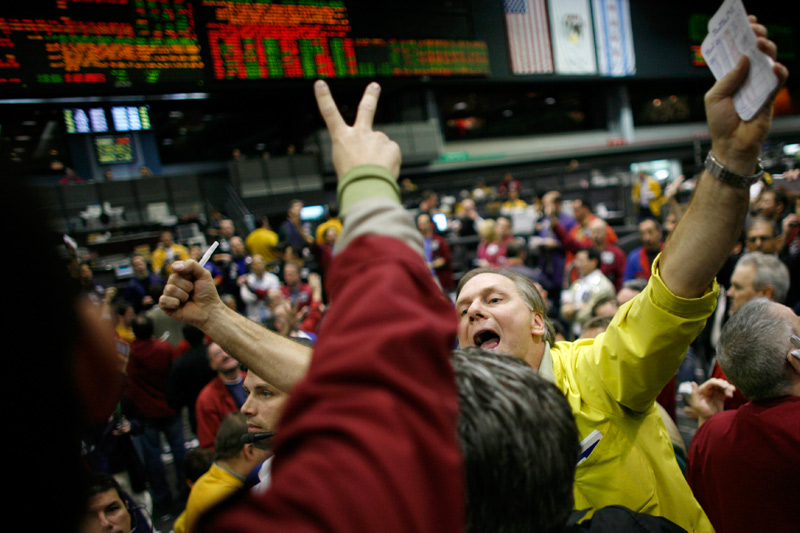By Clare Hutchison
LONDON (Reuters) - The London Stock Exchange (L:LSE) will launch a midday auction for the largest and most liquid stocks on its markets late next year, seeking to win back business by capitalising on new rules that clamp down on trading in rival venues called dark pools.
During the two minute auction, continuous trading of shares will be suspended, allowing buyers and sellers to execute big orders without the risk that prices move against them during their transactions.
That risk has attracted many investors in recent years to dark pools, where shares can be bought and sold anonymously without informing the market until the trade is completed.
Dark pools sprung up as a result of a series of European Union reforms to promote competition in equities trading introduced in 2007, and have taken market share from public markets such as the London Stock Exchange (LSE).
However EU regulators, concerned that dark pools could be open to market manipulation and that they take away liquidity from public exchanges making them more volatile, have now drafted another set of reforms that will limit the proportion of a company's shares that can be traded anonymously to 8 percent.
That has handed traditional exchanges an opportunity to win back customers wanting to execute big orders.
The LSE first proposed the idea of a midday auction in March, and has been consulting with investors about it since.
Buyers and sellers would be able to place orders during the auction, with an algorithm used to determine the price.
It could offer an advantage over dark pools, where buyers and sellers submit the price at which they would like to trade, but may not be able to get the deal done if they cannot find a counterparty prepared to do business at that price.
The auction would coincide with a similar process conducted on Germany's Deutsche Boerse (DE:DB1Gn), the LSE said on Wednesday.
"This is a very significant change to the trading day," said Brian Schwieger, head of Equities at the LSE. "The auction will allow participants to place orders in a truly confidential, yet price-forming environment via a well understood mechanism."
"We are aware that institutional investors hope it will encourage European markets to follow suit, creating over time a significant and harmonised pan-European focus for liquidity at midday across the continent," he added.

The new auction will operate in the same way as the LSE's opening and closing auctions. Customers will not be charged an additional fee or incur extra direct costs should they choose to participate.
(Editing by Mark Potter)
